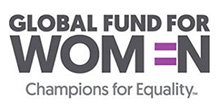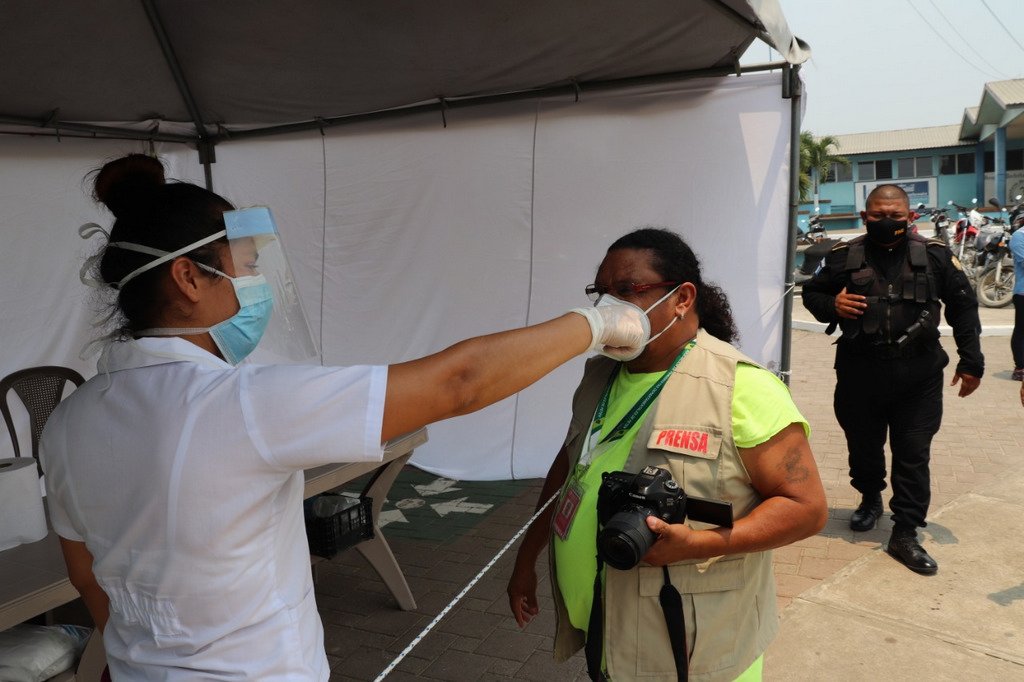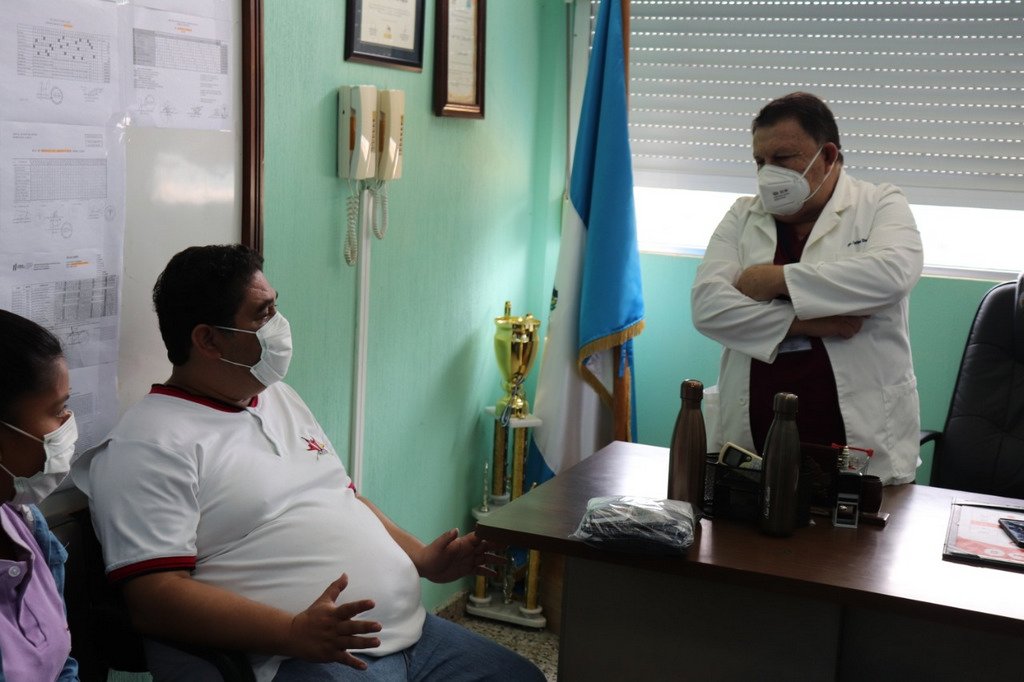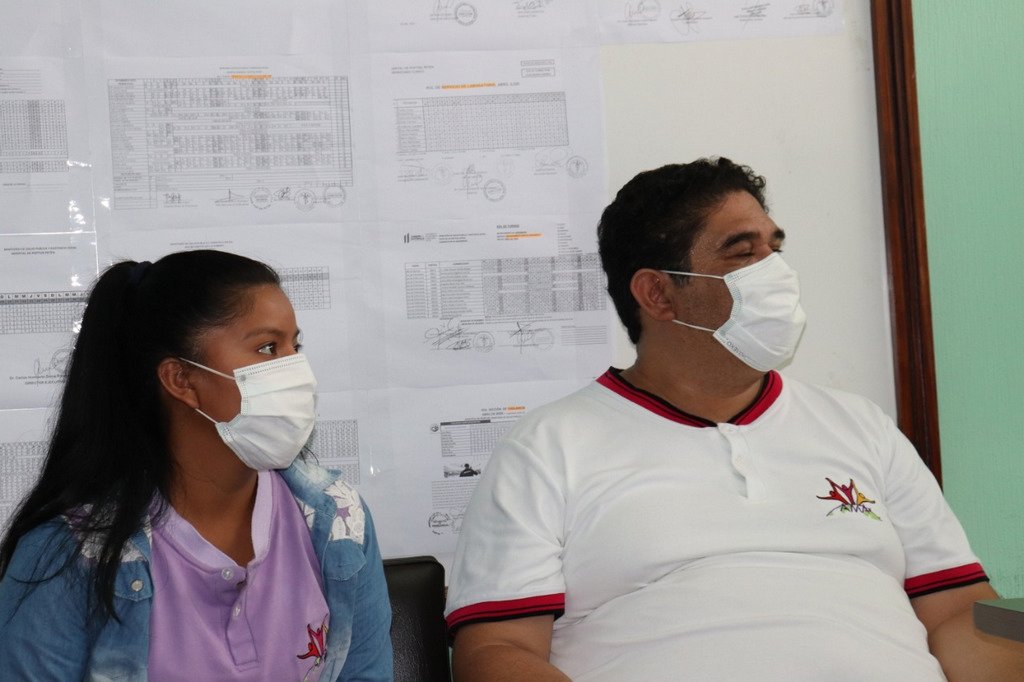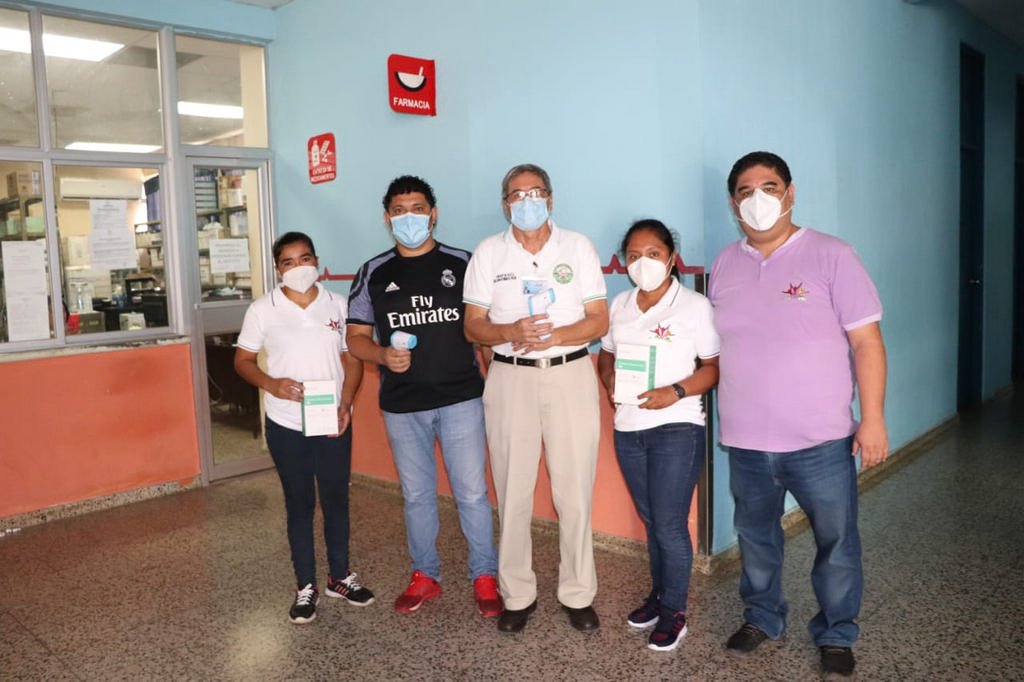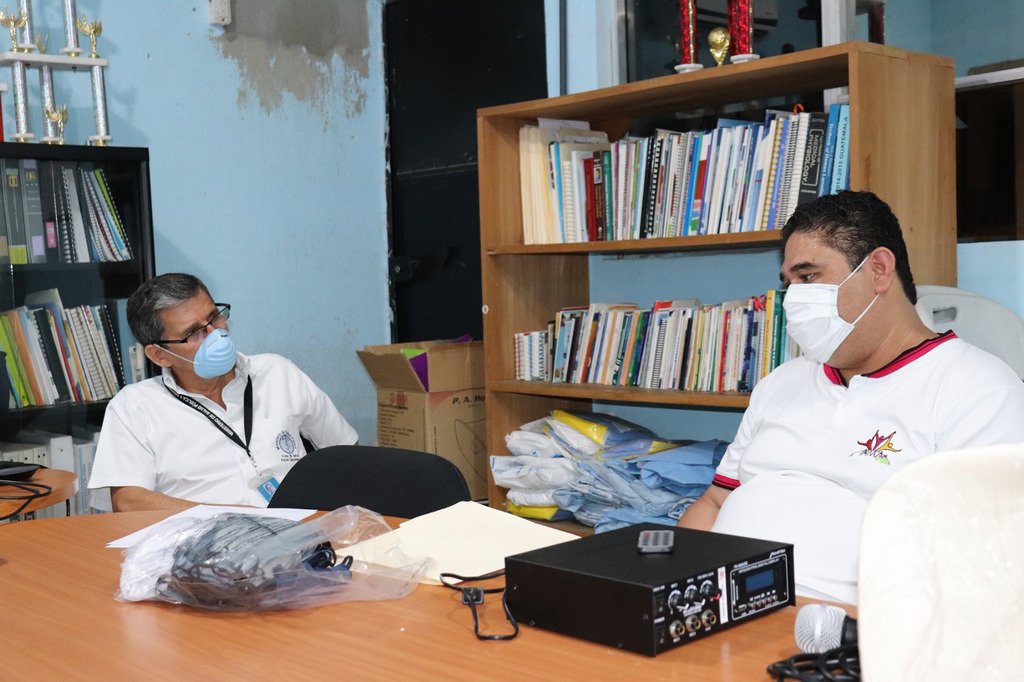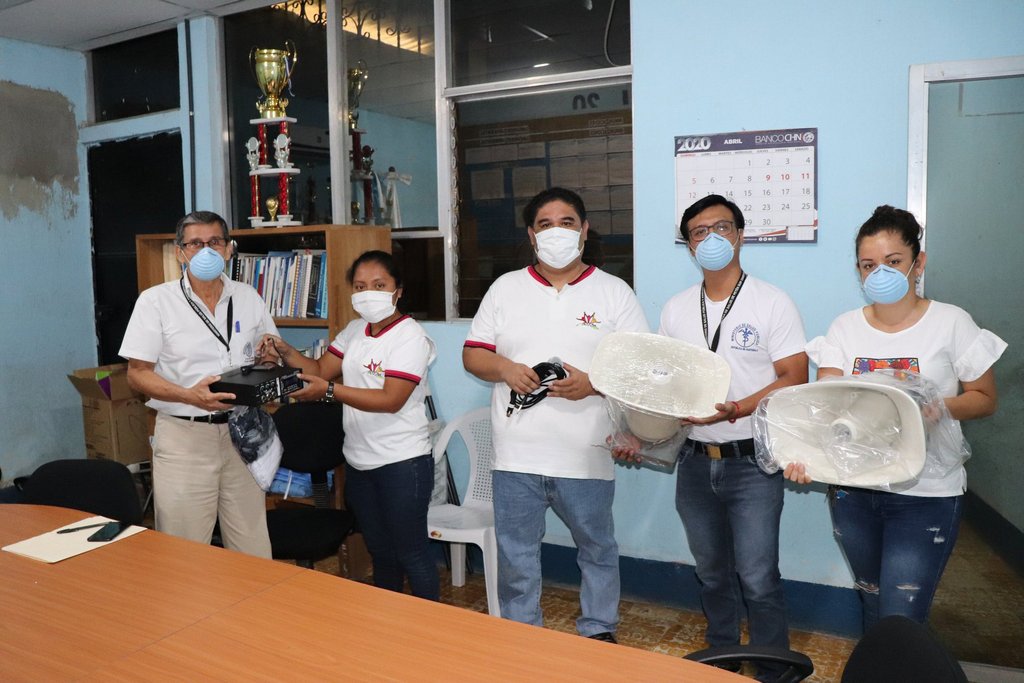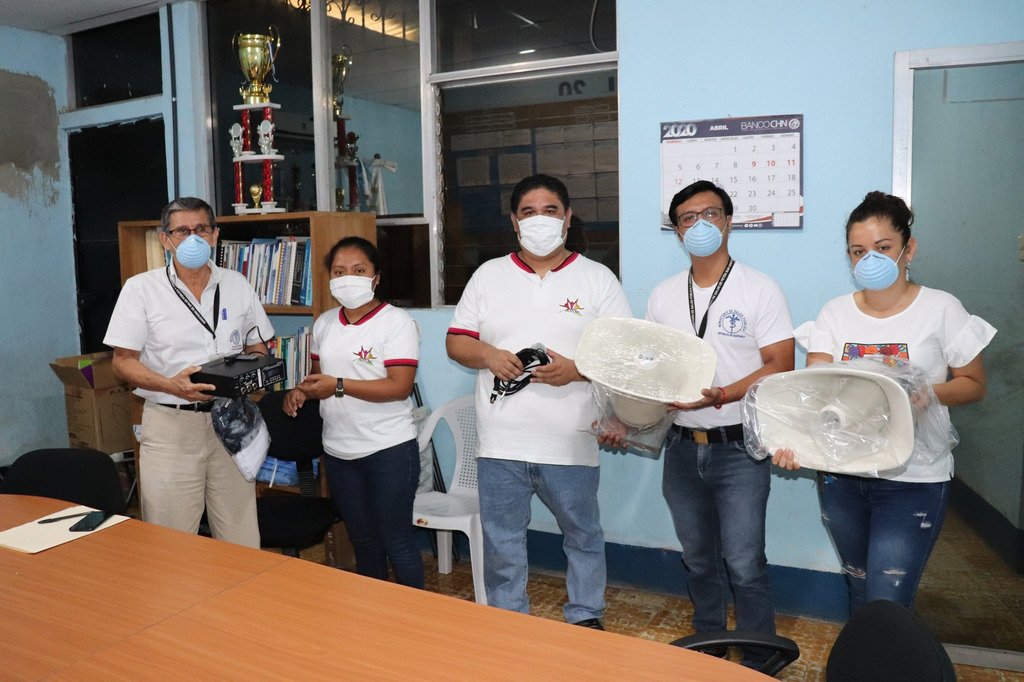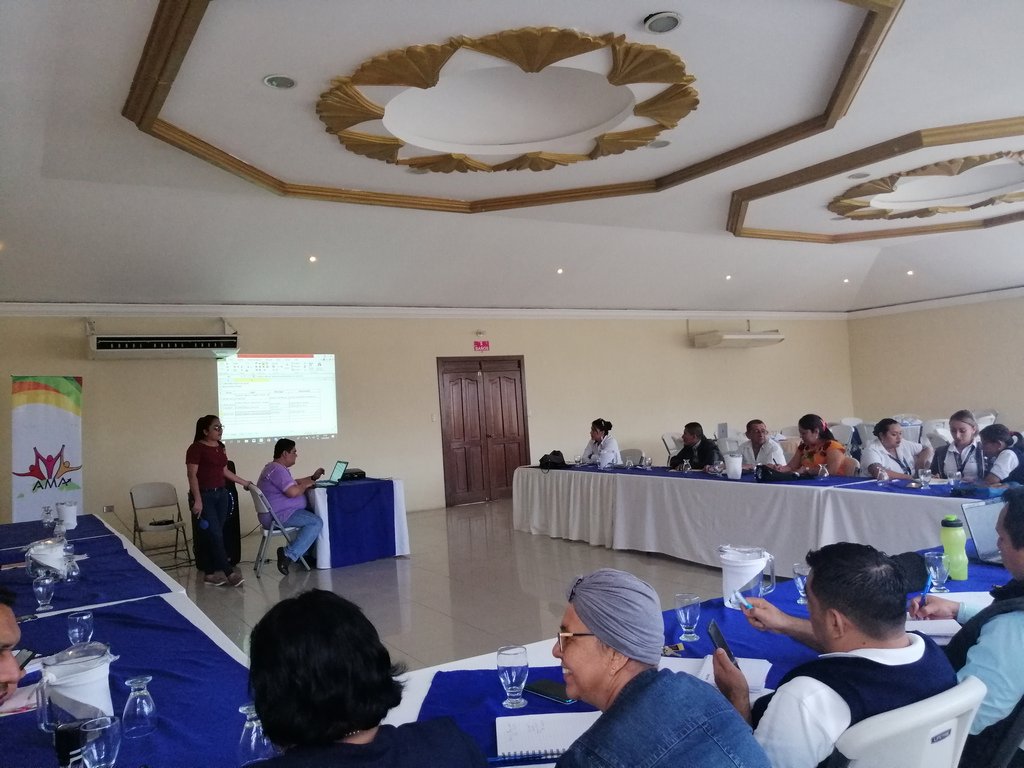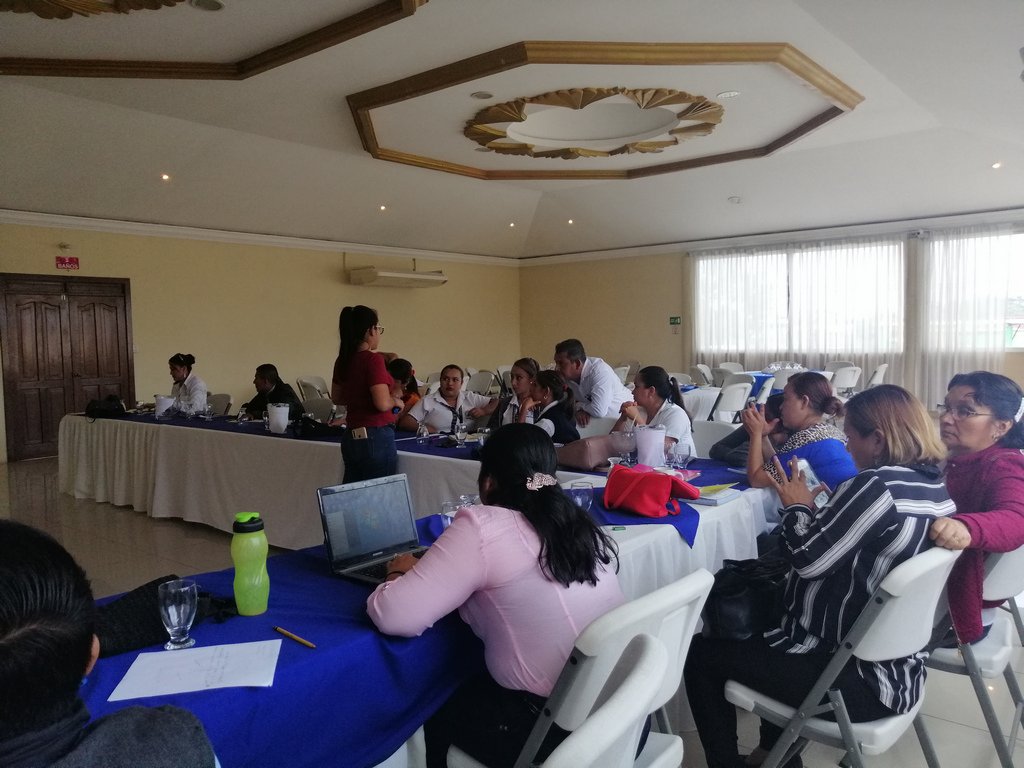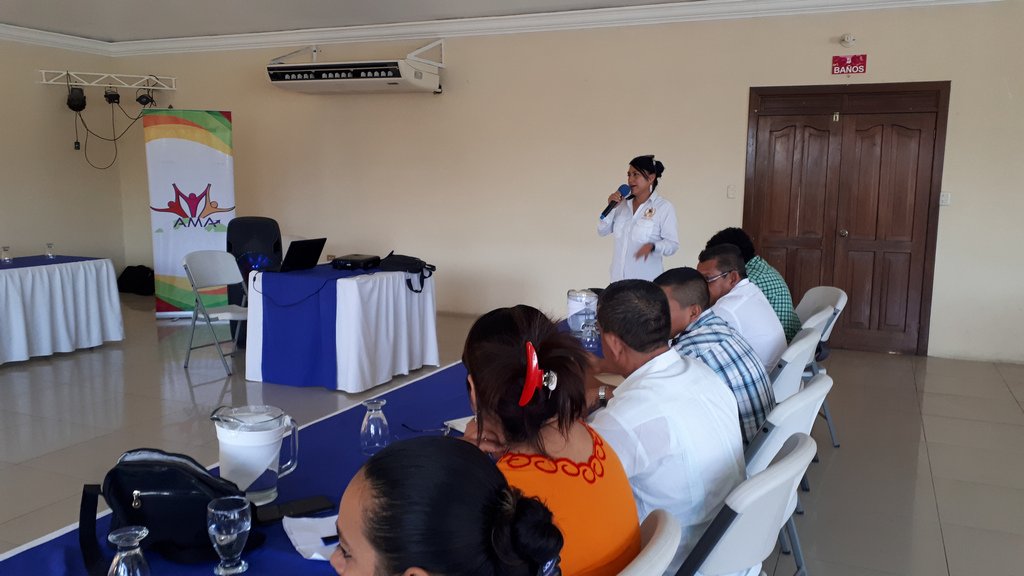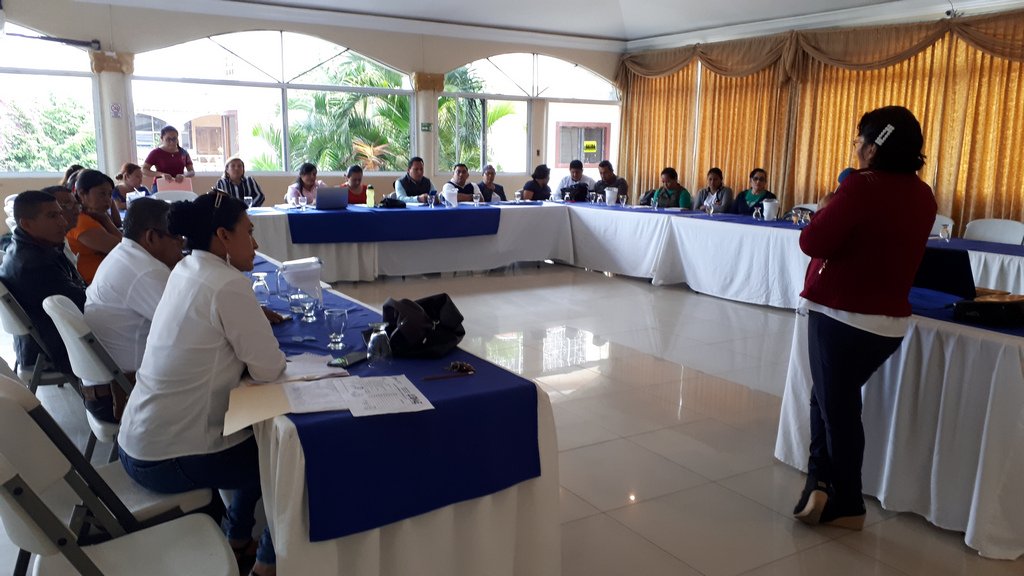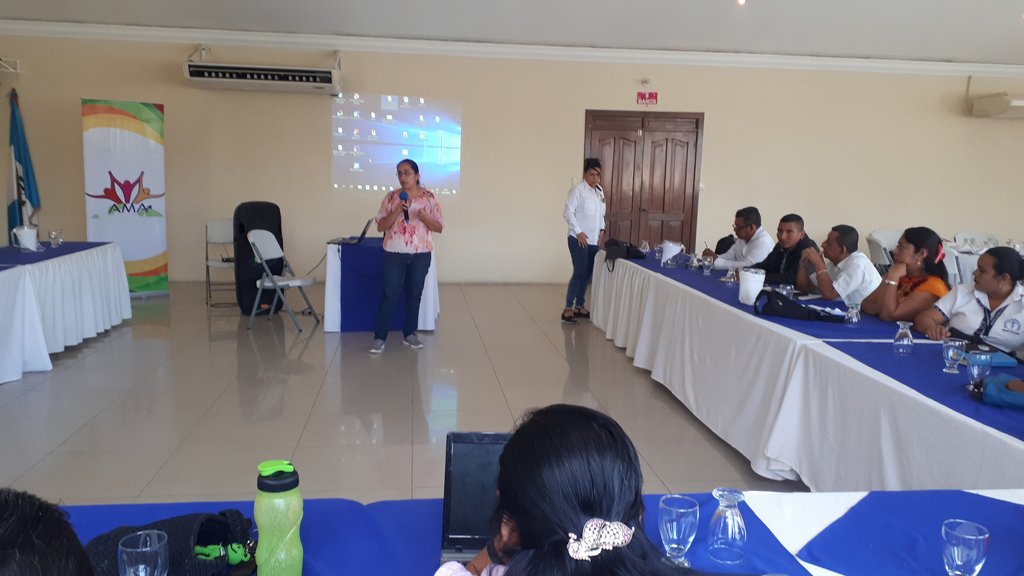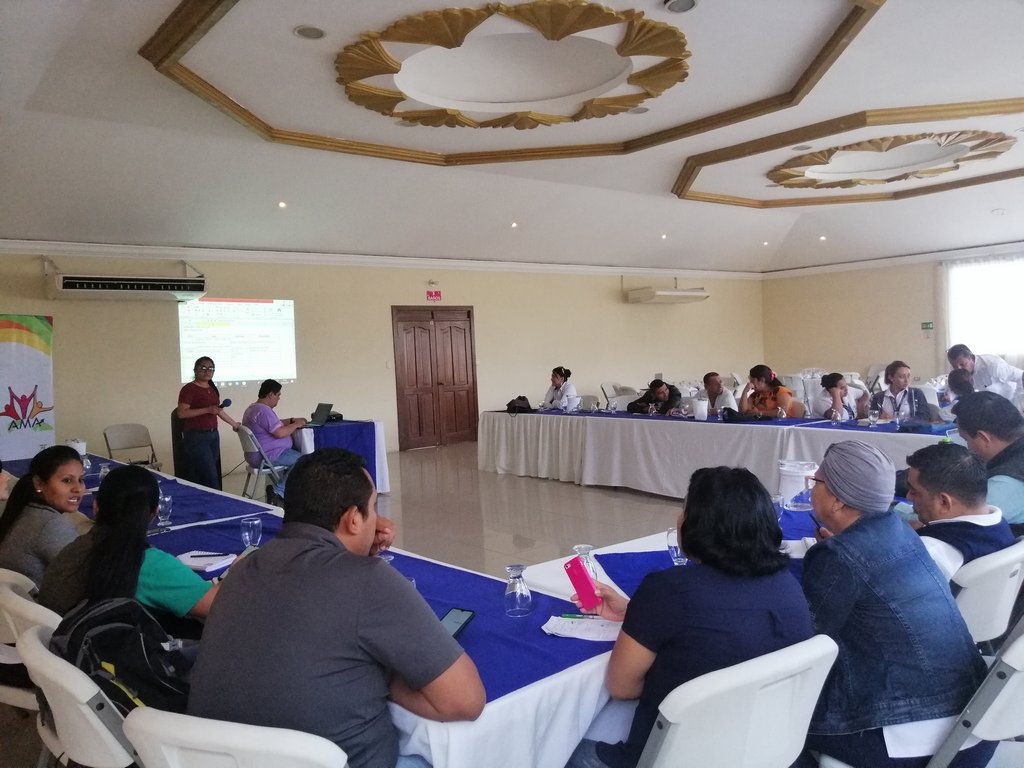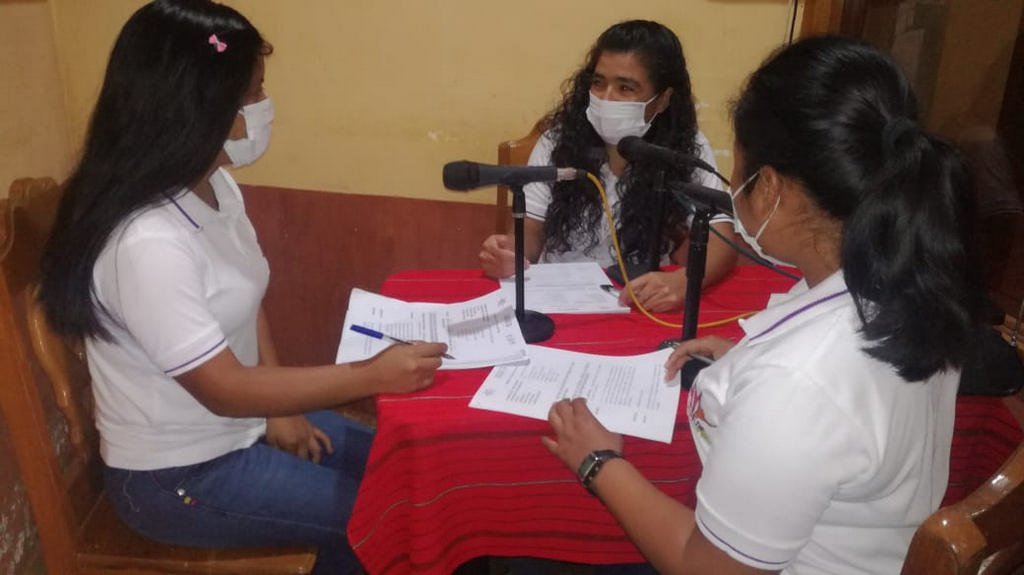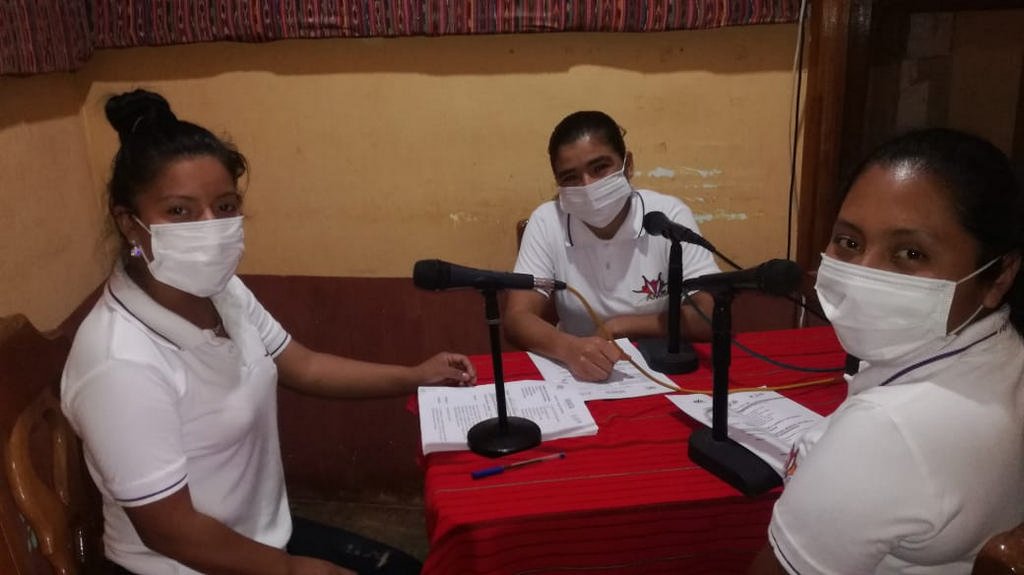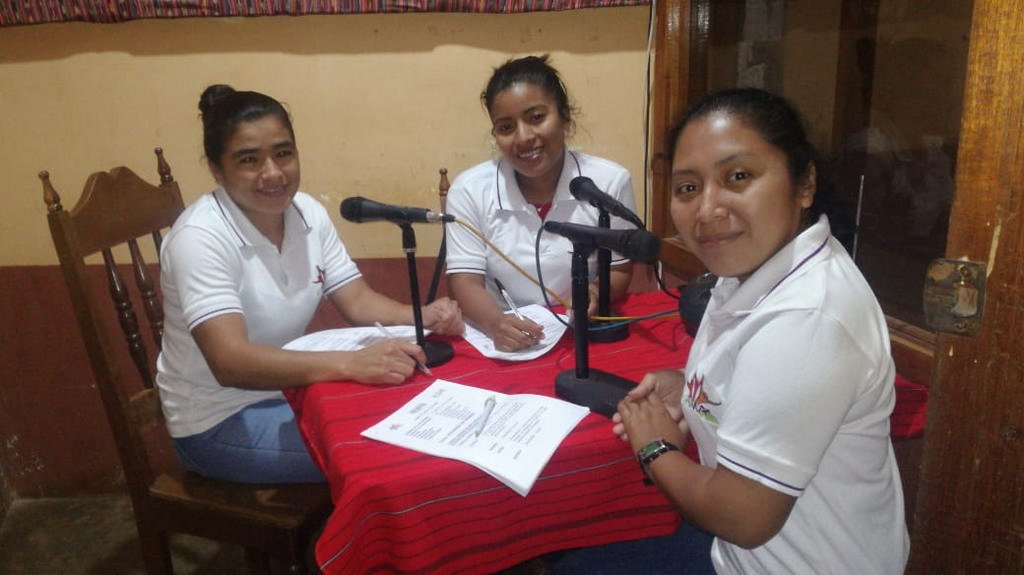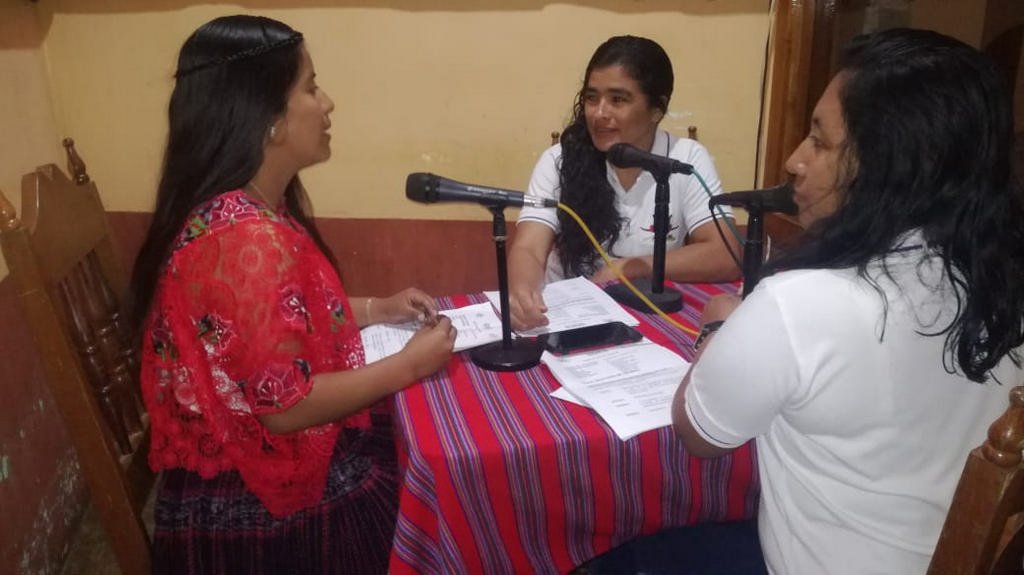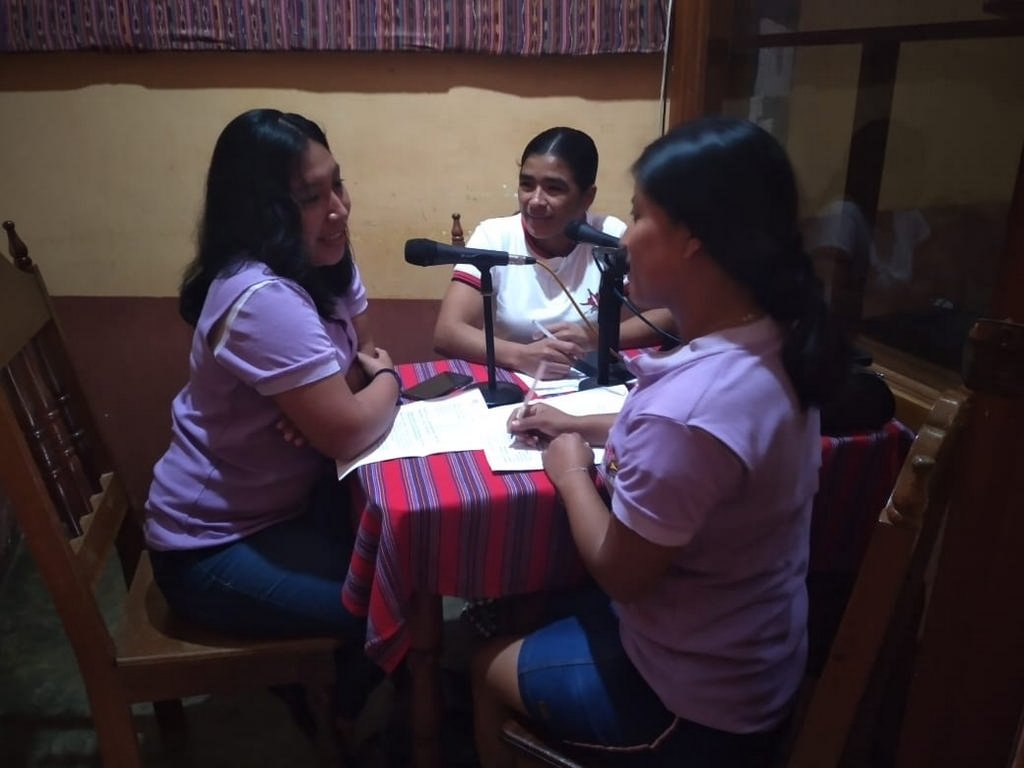
Project Name:
Diálogo y estrategias para la promoción de los Derechos Sexuales y Reproductivos de las niñas y adolescentes de Petén, Guatemala, Fase I y II (2019-2021)
Start date: June/2019
End date: June/2021
42 girls benefited
El proyecto “Dialogo y estrategias para la promoción de los Derechos Sexuales y Reproductivos de las niñas y adolescentes de Petén, Guatemala, Fase I y II (2019-2021)” se desarrolló dentro del marco del ingreso del COVID-19 a Guatemala.
In that sense, we would like to inform you that during the initial proposal of the project, the following activities were planned:
- Three annual meetings of the Technical Table "Prevent with Education" in the department of Petén.
- Fifteen broadcasts of the bilingual Spanish-Q'eqchí' radio program "El ABC de la Sexualidad."
- Partial payment for the acquisition of a vehicle for field activities for the AMA Association.
However, due to the emergency caused by Covid-19 and the restrictions imposed by the Guatemalan government, in-person activities were limited, which prevented the realization of the camps and the rest of the scheduled activities.
The above did not prevent us from continuing with the project's execution. Thanks to the flexibility in the development of activities by the Global Fund for Women, the following was carried out, and the response to COVID-19 was strengthened.
Actividades
During the first quarter of 2020, the first meeting of the Technical Table "Prevent with Education" in the department of Petén took place, in which the 2020 Strategic Plan was established. This was done in consensus among the officials who are part of the table from the Departmental Directorate of Education of Petén (DIDEDUC) and the three Area Health Directorates of Petén (Petén North, Petén Southwest, and Petén Southeast).
The plan focused on strengthening the inclusion of Comprehensive Sexuality Education (CSE) and Violence Prevention (PV) in the educational system of the department of Petén. For the first time in the history of the department, 14 Diplomas on CSE and PV were scheduled in all 14 municipalities and 26 school districts of Petén.
In this schedule, 936 teachers from 219 primary schools and basic education institutes participated. This allowed 19,821 Maya Q'eqchí' and Mestizo adolescent girls from the 14 municipalities of the Petén department to begin receiving timely, secular, and scientific information on CSE and PV.
This process was interrupted with the arrival of COVID-19 in Guatemala; however, it was resumed by the participants in a hybrid form. It should be noted that the groups were limited, so it is estimated that it reached 40% of the initial proposal.
Fifteen episodes of the bilingual Spanish-Q'eqchí' radio program "The ABC of Sexuality" were broadcasted, reaching 88,200 adolescent girls and young women from the Maya Q’eqchí’ and Mestiza communities in rural areas and marginalized urban areas of the departments of Petén, Izabal, Baja Verapaz, Alta Verapaz, and Quiché. The program focused on promoting the exercise of Sexual and Reproductive Rights, discussing risks, consequences, national abortion legislation, prevention of violence against women, gender equality, and the importance of women's participation.
The programs also served to inform the population about COVID-19 biosecurity measures, prevent gender-based violence during the pandemic, and emphasize the importance of girls continuing their education. In Guatemala, schools were closed, and there was no plan for distance learning.
The programs were broadcasted through the community radio station U'tan Kaj, which belongs to the Apostolic Vicariate of Petén and has a coverage of 1,000,000 people and an audience of 180,000.
As part of the response to COVID-19 and the strengthening of the public health system, which, it is worth mentioning, is in precarious conditions and on the verge of collapse due to the crisis, the following actions were taken:
- Delivery of 1 set of loudspeaker equipment (speaker, microphone, amplifier) to the Department of Communication for Social and Behavioral Change of the Directorate of Health Area Southeast Petén, with the aim of strengthening the dissemination of hygiene and COVID-19 prevention measures in rural communities and marginalized urban areas of the South Area of Petén, Guatemala.
- Delivery of 2 infrared thermometers to the Sexual Violence Clinic of the District Hospital of Poptún, Petén, which are being used by medical personnel during the care of women victims of sexual violence in the South of Petén, Guatemala.
- Entrega de 350 mascarillas lavables y reutilizables (tapaboca) 200 al Hospital Distrital de Poptún, Petén, y 150 a la Dirección de Área de Salud Petén Sur Oriental, para ser utilizada por las colaboradoras de dichas dependencias
The supplies and equipment delivered, allow health collaborators to have daily protection for the prevention of COVID-19, which strengthens the medical care that adolescent girls, young women and their families require, as well as strengthens awareness in the most vulnerable communities and marginal urban areas, because they do not have access to radio, television or internet.
During the project period, the AMA Association acquired a 4x4 Pick Up vehicle, with partial funding from FGM covering the vehicle's costs. This vehicle was necessary for AMA to carry out field activities.
Due to the pandemic, the AMA Association changed much of its work methodologies and transfer of capabilities to adolescent girls and young women. Before the pandemic, AMA conducted its activities in the municipality of Poptún, where participants would travel from their communities to the urban case of the municipality. With the arrival of the pandemic in Guatemala, this methodology was changed, as it is now necessary for the AMA team and supplies to be transported to the participants' communities of origin, to avoid exposing them to COVID-19 infections.
In this regard, the acquisition of the vehicle has been of great importance and has strengthened AMA's response during the pandemic. It is worth mentioning that the communities where AMA focuses its work are distant and difficult to access, making it necessary to have the vehicle, especially one with double traction, to enter communities where roads are in poor condition.
With the aim of strengthening the investigative procedures related to potential cases of sexual violence, the AMA Association provided the Dignity Kit to the Local Referral Network for Crime Victims in the South of Petén, which is coordinated by the Public Ministry.
The kit includes underwear, t-shirts, and undershirts, which will be provided to victims of sexual violence as needed. As part of the investigation procedures, there is the process of packaging the clothing worn by the victim of sexual violence, which can serve as a clue and later become evidence or proof of the commission of a crime.
As a result, victims provide their intimate clothing, and it becomes necessary to support them by providing new ones, as many of them have limited financial resources.
With funds provided by the Global Fund for Women, we went to the Santo Domingo village in Poptún, Petén, where we delivered 83 bags containing food and cleaning supplies for COVID-19 prevention.
This was in response to the health emergency that occurred in the village after a mass outbreak of COVID-19, leading the Community Development Council (COCODE) authorities to close the community and declare mandatory quarantine.
For the AMA Association, it is important to show solidarity and empathy towards the families in quarantine. It is essential to consider that many people have lost their sources of income, putting the food security and nutrition of many adolescent girls and their families at risk. Even before the pandemic, they were already facing food shortages. Therefore, we believe it is timely and necessary to contribute our part to help those who currently need assistance.
A laptop was acquired for DIDEDUC to strengthen the Coordination of the Technical Table for Prevention with Education in Petén. This has allowed for the continued coordination of the table through remote meetings. It's worth noting that the Ministry of Education is responsible for presiding over the table, as per the "Prevention with Education" Agreement.
In partnership with the Local Referral Network for the Assistance of Crime Victims in Southern Petén from the Public Ministry, the International Women's Day commemoration took place, where thermal thermoses were delivered.
The workshop was held for Ministry of Health personnel, INACIF Auxiliary Prosecutors, to coordinate action protocols regarding pregnant minors under 14 years of age, as well as the routes and provisions for both INACIF and the Public Ministry to take action.
Participation of adolescent girls in the Open Dialogue with organized youth groups from the Department of Petén, chaired by the Vice President of the Republic of Guatemala.
Results Achieved 2019-2021
- Meetings of the technical table "Prevent with Education" in the department of Petén
30 officials, both Maya Q'eqchí' and mestizo, who are part of the dialogue table. - Bilingual Spanish-Maya Q’eqchí Radio Program "The ABC of Sexuality"
88,200 adolescent girls and young women, both Maya Q'eqchí' and mestizo, from rural communities and marginalized urban areas in the departments of Petén, Izabal, Baja Verapaz, Alta Verapaz, and Quiche, who were sensitized about the importance of exercising their Sexual and Reproductive Rights, risks, consequences, and current national legislation regarding abortion, prevention of violence against women, gender equality, and the importance of women's participation. - Delivery of supplies and equipment to the Ministry of Public Health and Social Assistance.
350 healthcare personnel. - Donation of Dignity Kits to the Public Ministry of Poptún, Petén.
40 adolescent girls and young women, both Maya Q'eqchí' and mestizo, who are victims and survivors of sexual violence. - Distribution of food bags and hygiene kits to women in mandatory quarantine due to COVID-19.
83 families from the Santo Domingo village in Poptún, Petén. - Workshop for personnel from the Ministry of Health and INACIF Forensic Assistants.
40 personnel from the Ministry of Health and INACIF Forensic Assistants.
The inclusion of Comprehensive Sexuality Education (EIS) and Violence Prevention (PV) in the educational system of the Petén department, Guatemala, was strengthened through the Departmental Technical Table "Preventing with Education." A total of 14 Diplomas on EIS and PV were scheduled, with the participation of 936 teachers from 219 primary schools and basic education institutes.
A total of 19,821 adolescent girls, including Maya Q'eqchi' and Mestizas, from the 14 municipalities of the Petén department, were set to receive timely, secular, and scientific information on topics related to their Sexual and Reproductive Rights, sexuality, and violence prevention. Please note that these activities were suspended due to the COVID-19 pandemic.
The project successfully reached and influenced 88,200 adolescent girls and young women, including Maya Q'eqchi' and Mestizas, in rural communities and marginalized urban areas of the departments of Petén, Izabal, Baja Verapaz, Alta Verapaz, and Quiché. They were educated about the importance of exercising their Sexual and Reproductive Rights, the risks and consequences, the current national legislation on abortion, violence prevention against women, gender equality, and the importance of women's participation. This was achieved through 15 episodes of the bilingual Spanish-Maya Q'eqchi' radio program "El ABC de la Sexualidad," broadcasted on the U'tan Kaj community radio, which belongs to the Apostolic Vicariate of Petén. This radio station has a coverage of 1,000,000 people and an audience of 180,000.
The process of updating the Strategic Plan for 2020-2022 for the Association AMA was successfully completed. This involved evaluating the current strategic plan of the organization, analyzing the context and functional areas of AMA, setting objectives and goals, and defining the actions and methods (i.e., strategies) needed to fulfill the organization's mission.
Sexual violence and pregnancies among adolescent girls and young women are increasing problems in Guatemala, and the communities of Southern Petén are no exception (Municipalities of San Luis, Poptún, Dolores, El Chal, and Santa Ana).
The National Observatory for Sexual and Reproductive Health (OSAR) reported that from January to October 2019, there were 114,858 pregnancies among indigenous and mestizo girls and adolescents aged 10 to 19 years. Of these, 5,061 pregnancies were among girls aged 10 to 14 years, which is considered a form of sexual violence. This highlights the significant issue of early pregnancies and sexual violence against young girls in the region.
During the same period, in the Petén region, OSAR reported 3,685 pregnancies among girls and adolescents aged 10 to 19 years, with 177 of them being cases of sexual violence as they involved girls aged 10 to 14 years. This data underscores the prevalence of early pregnancies and cases of sexual violence against young girls in the Petén region.
In the Southern Petén region, there were 1,070 pregnancies among girls and adolescents aged 10 to 19 years, with 41 of them involving girls aged 10 to 14 years, as reported by OSAR. This data highlights the concerning issue of early pregnancies in the Southern Petén region, particularly among young girls.
The donor who funded this project
